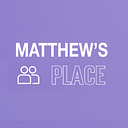Importance of the Day of Silence
by Judy Bokao
The Day of Silence is one of the important days in the LGBTQ+ calendar. It is annually celebrated in April since 1996. Currently, the Day of Silence is observed by students in all fifty states in the United States and is also celebrated on an international level in schools in Russia, Singapore, and New Zealand. It is a day of action organised by students to spread awareness about how bullying and harassment of members of the LGBTQ+ affects them. Normally, students observe a day-long vow of silence to symbolically represent the silencing of LGBTQ+ students.
In United States, the day is organised by the Gay, Lesbian and Straight Education Network, otherwise known as GLSEN, a United States-based education organisation. The organisation is working to end discrimination, harassment, and bullying based on one’s sexual orientation, gender identity and gender expression. The Day of Silence this year will be observed on 24th of April.
This is really an important day for American LGBTQ+ youth because it encourages LGBTQ+ cultural inclusion and awareness in K-12 schools. Schools are supposed to be a safe space to learn new skills and explore childrens’ talents, but unfortunately for many LGBTQ+ students — it is unsafe. For most kids, school has become a place where they get heavy emotional scars that haunt them into their adulthood. The bullying in the American school system is a real problem and has affected so many kids especially for those who identify as queer.
According to the national school climate survey carried out by GLSEN in 2013, four out of five LGBT students reported verbal, sexual or physical harassment at school and a third reported missing at least one day of school in the past month out of fear for their personal safety. Day of Silence gives hundreds of thousands of students in over 10,000 schools across the country a chance to stand together and “speak out” against the endemic name-calling, bullying and harassment faced by LGBTQ+ students and their allies.
The silent protest effectively puts the important message across that there is no need for any kind of violence, regardless of where you stand on the issue. The LGBTQ+ community faces bullying every day, but it doesn’t necessarily mean that one is beaten to a pulp. Bullying comes in various forms and name calling is one of the most painful forms. Words have a way to cut deeper than a knife. Hurtful words stick in our minds, especially if they are repeatedly said to us by different people. Hurtful words can really break someone’s spirit and can send them into a dark depression. Bullying is an epidemic in schools and this silent protest is an excellent way to promote awareness and discussion of this issue.
The Day of Silence has received some opposition with those against it saying that it “promotes homosexuality “ and disrupts learning. Others have argued that it creates a hostile environment for students who are religious. While a school does not have to officially “sponsor” Day of Silence activities, it is every student’s First Amendment right to participate in a silent protest. Students who voluntarily participate in Day of Silence should be aware that there may be academic or disciplinary consequences for refusing to speak during the school day, depending on where you go to school. Most students who choose to participate in DOS make advance arrangements with their teachers to make up any schoolwork or participation points they miss out on during DOS. Day of Silence is not just an excuse to skip out on participating in class.
It is also important to remember that while it is every student’s First Amendment right to voice his/her personal beliefs about being LGBTQ+, school districts have a responsibility to protect every student equally from genuinely threatening, demeaning, and harassing speech and behavior. Day of Silence is not intended to “promote homosexuality” or encourage other students to be gay. Rather, the intent of Day of Silence is to call attention to the fact that many LGBTQ+ people and students face harassment and discrimination on a daily basis. If a group of students want to organize a “Day of Dialogue” in response to “Day of Silence” and share their personal views on being LGBTQ+, they have every right to do that, provided they are not using their words or actions to create unsafe or hostile learning environments for another group.
This year, due to the coronavirus pandemic ,the day will be observed virtually. All one needs to do to take part in the protest is to register on the GLSEN website and take a vow of silence to highlight the need for change. There is a certain beauty in acknowledging the power of silence for a good cause. In the end, if you are not going to use your voice for good then it is best to keep quiet. Before you say hurtful words to someone because of their sexual orientation, which is something they didn’t have control over, take a step back and think if you would like someone to say those words to you. The moral here is, say unto others what you would like them to say unto you.
Or just stay silent.
About the Author:
Judy Bokao is 20 years old and was born in Ethiopia but relocated to Nairobi two years ago. She is passionate about everyone having equal rights and is also big on conservation and speaking up for our planet. Judy loves reading and photography and is just a free-spirited young lady trying to grow into a woman her mom can be proud of.

